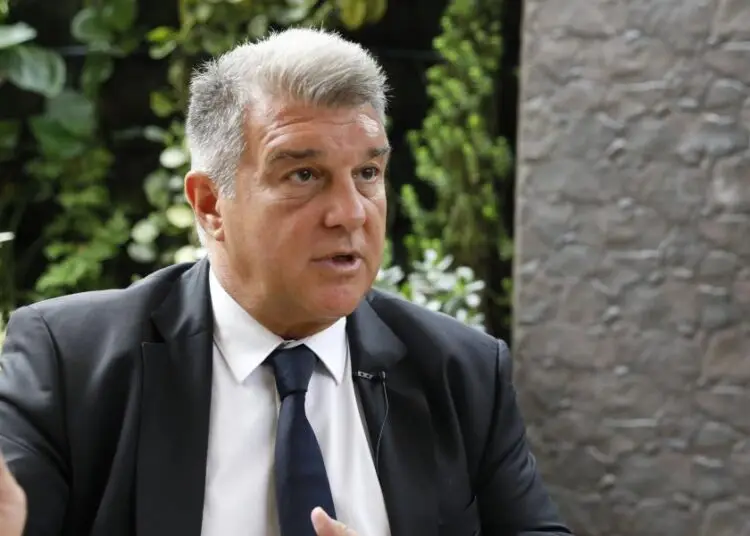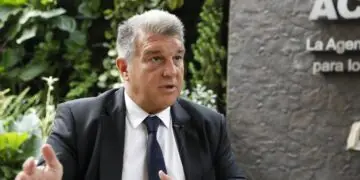In the world of football, financial constraints often dictate a club’s ability to strengthen its squad. Barcelona, despite its storied history and global stature, is no exception to this rule. Over the last few seasons, the Catalan giants have been walking a financial tightrope, grappling with salary limits imposed by La Liga.
In the previous campaign, Barcelona’s salary cap stood at a staggering €648.8 million. However, this figure was considerably lower than the €667 million they had at their disposal the season before. The club made desperate efforts to cut costs. Including parting ways with several stalwarts, including Gerard Pique, Jordi Alba, and Sergio Busquets. These measures brought the wage bill down by €162 million, leaving it at approximately €404 million.
While these moves aimed to bring Barcelona within their financial bounds, the club still finds itself in a precarious position. Their new salary cap, as confirmed by La Liga, has been reduced drastically to a mere €270 million. This leaves them facing a shortfall of €134 million, a staggering 49% over the stipulated limit.
Implications of the Salary Limit Crisis
Barcelona’s constrained finances mean they can only reinvest 50% of the money saved from player wages and 50% of transfer earnings until they achieve financial stability.
The arrival of Deco as Sporting Director was anticipated as a fresh start. But it seems he will have little room to maneuver. Although Brazilian forward Vitor Roque’s transfer was set for July 2024, there are efforts to expedite it to January, potentially adding an extra €30 million plus €31 million in variables to the club’s expenses, including Roque’s salary.
La Liga’s Financial Landscape
La Liga’s President, Javier Tebas, appears unfazed by the challenges faced by Spanish clubs. He believes that despite being outspent by European and Saudi Arabian rivals, La Liga’s long-term strategy and fiscal responsibility will see them through.
While La Liga spent €453 million on transfers, this figure is dwarfed by the Premier League’s staggering €3.018 billion. In the Middle East, Saudi Arabia entered the football market with a nearly billion-euro investment of €957 million. Ligue 1 invested €982 million, the Bundesliga contributed €767 million, and Serie A reached €1.079 billion – all well above La Liga’s figures.
Tebas dismisses concerns about a talent drain, stating that the spending levels in Italy and the Premier League are unsustainable. He believes that adhering to UEFA’s new Financial Fair Play rules and improved fiscal responsibility will bring long-term success.
Barcelona’s Peculiar Salary Limit Impact
Despite their commendable efforts, Barcelona remains well above their salary cap. Even if the loaned Joao Felix earns only around €400,000 for the season, the impact on their salary limit is substantial. Tebas clarified that Joao Felix’s contract had a much larger impact on the salary limit than initially estimated.
With a significant excess over the salary cap, Barcelona’s options for new signings are severely restricted. They must sell players to raise funds, but they can only reinvest 50% of the money saved or earned from those deals.
The Impact on Vitor Roque’s Arrival?
Barcelona’s plans to bring in 18-year-old Brazilian forward Vitor Roque have hit a roadblock due to the salary limits imposed by La Liga. The club had hoped to expedite Roque’s arrival to January, but their significantly reduced salary cap makes this unlikely.
The financial constraints could affect the team’s performance, particularly with Robert Lewandowski now 35 years old. Xavi Hernandez, the club’s manager, may have to rely on makeshift solutions, with Ferran Torres being a likely candidate.
In conclusion, Barcelona faces a challenging season as they navigate salary limits and transfer constraints. While financial responsibility is essential, it remains to be seen how the club will adapt to these new limitations and compete at the highest level.
Discover more from Barça Buzz
Subscribe to get the latest posts sent to your email.






















